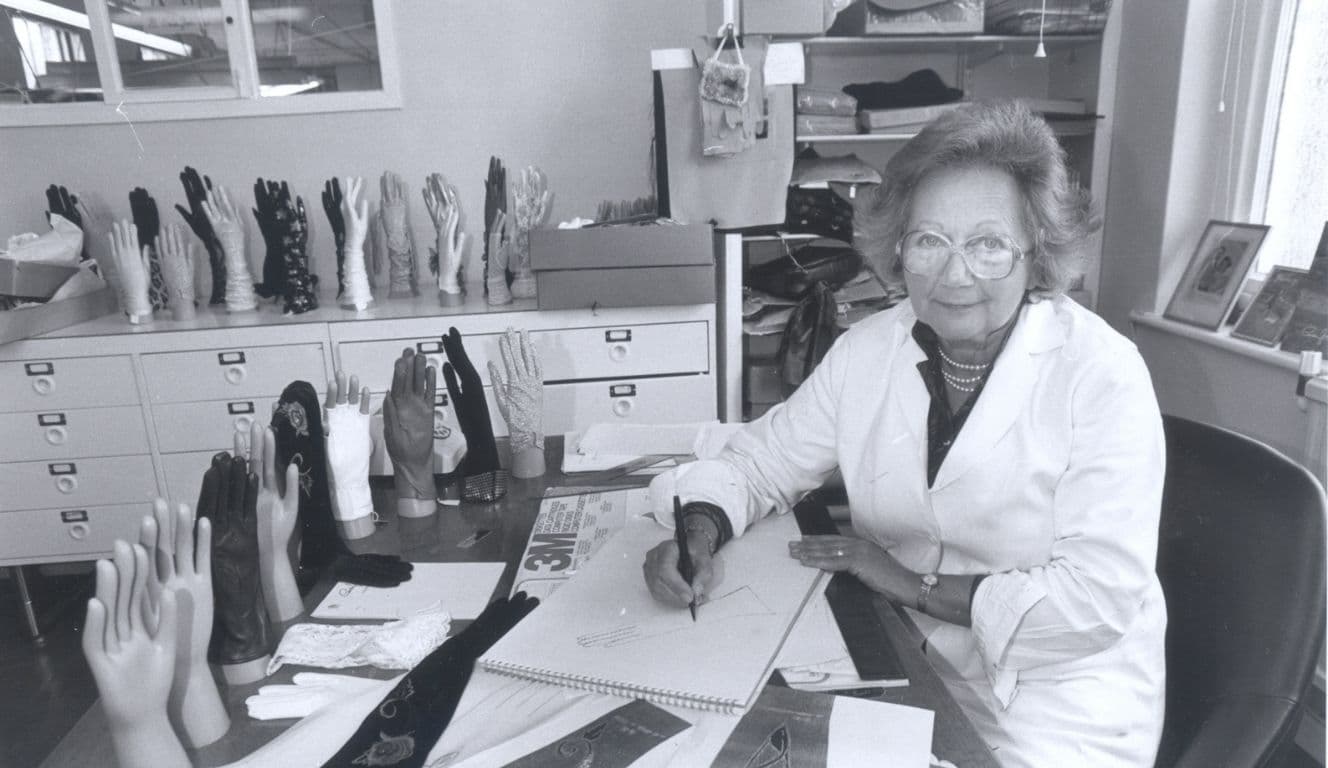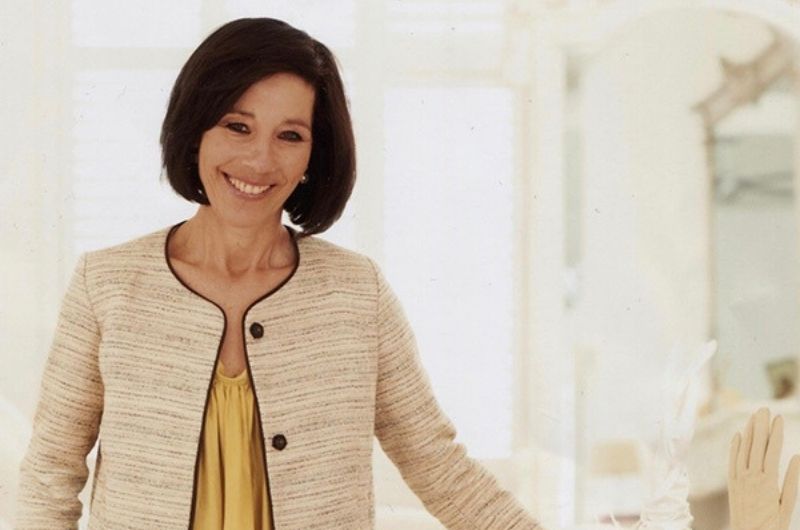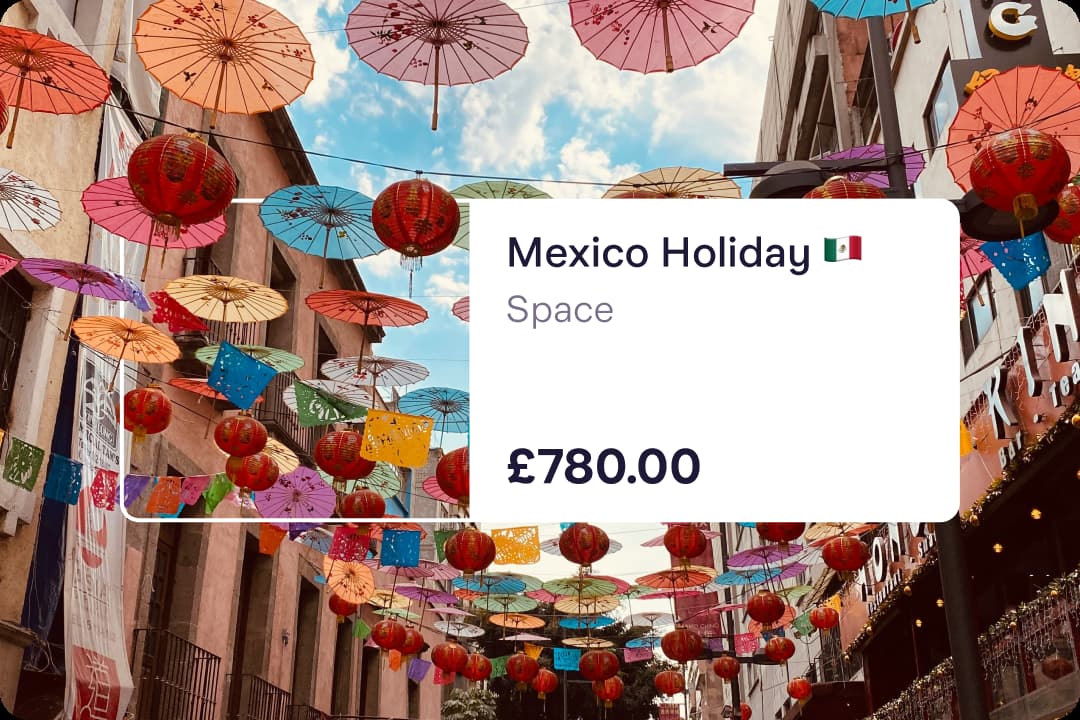
Business
“Becoming a mentor helped me see my own value.”
6th March 2025
22nd December 2020

Almost 75 years ago, an Austrian refugee called Cornelia James set up a business to make and sell gloves in Britain. Building on what she had learned at the College of Art in Vienna, she stitched each pair from the coloured leather she had packed into the one suitcase she’d taken, when she fled the city. Today, Cornelia James gloves are esteemed and sold all over the world.
“When it comes to starting and running a business, the main thing is to be adaptable,” says Cornelia’s son-in-law, Andrew Lawson, managing director. “You must have a plan but the plan must allow for flexibility and change. It’s also important to have a sympathetic bank behind you and a passion for what you’re doing. If your heart’s not in it, you’re never going to hack it.”
The Cornelia James glove making business has banked with Starling since 2019. Here, we share the story of how the business began and how it adapted to become the brand it is now.
“Cornelia was a real force of nature,” says Andrew, 69. “She was born in Vienna and her family was Jewish, which meant that she had to leave smartly in 1939. She spent the war years organising craft therapy for injured servicemen and set up her business in 1946. When she started, gloves were more of a commodity than the luxury they are now. Almost everybody would put on a pair of gloves to go outside, even to buy a pint of milk.”
For post-war Britain, Cornelia James’ gloves were the perfect accessory. Rationing had restricted what people could find or afford but many were eager to brighten their outfits with a splash of colour; coloured leather gloves fitted the bill.
“She was very artistic but she could also spot a business opportunity,” he says. “Throughout the fifties, she had a thriving business.”
Just one year into running her business, Cornelia caught the attention of designer Norman Hartnell. When he was invited to design the wedding gown and pre-honeymoon ‘going away’ dress for Princess Elizabeth, he turned to Cornelia to provide the gloves to complete her outfit.
In 1978, Cornelia was granted a Royal Warrant, a mark of excellence and testimony to the designer’s long-standing relationship with the royal household. Princess Anne, Princess Diana and the Duchess of Cambridge have all been known to wear Cornelia James gloves.

“You can’t buy a Royal Warrant, you can only apply for it by invitation after supplying the Royal household for a number of years. It’s a mark of quality and integrity, which is recognised all over the world,” says Andrew.
As a brand, Cornelia James has adapted to three major changes, each time coming back stronger than before. In the 60s, Cornelia responded to the fall in demand for gloves by adding a range of printed scarves, a product which proved incredibly popular.
“The business prospered until the beginning of the 90s, when the market changed again with businesses arranging cheaper manufacturing overseas. A lot of our business was with independent boutiques. These became increasingly vulnerable with the advent of chains selling fashions and accessories. We were lucky in that we had a manufacturing capability. We held our own by modernising our processes - but the future looked uncertain,” says Andrew.
“The third big shift started ten years ago when we stopped being wholesalers, and refocused on being a brand and started to sell directly to customers. The internet was a godsend.” Cornelia James launched its website in 2004, well before many other luxury fashion brands, and now makes 95% of its sales online. Gloves are sold to customers around the world, with 60% going to the States.

“We’ve also benefited from the slow fashion movement. People seem to have a growing appreciation for things that last forever,” he says.
Andrew has headed up the family-run business with his wife Genevieve, Cornelia’s daughter, since 1999. “We thought that Cornelia would retire at 80 but she stoutly refused. She more or less died in harness when she was 84.”
Her determination and talent lives on through the beautiful and innovative designs of her daughter. “Genevieve spent a year in Paris but she essentially learned from her mother.”

Several designs include a hand-stitched silver or gold star to make the gloves touchscreen friendly, and even more useful.
Cornelia James gloves are made by eight highly-skilled machinists, all working from a converted cattle shed in East Sussex. “We’ve gone back to our roots as specialist glove makers,” he says.
"We applied for the loan with Starling one week and received the cash the following week - it was perfect," says Andrew.
Using the Bounce Back Loan it received from Starling, the business expanded into what used to be the milking parlour. This too, is a return to an earlier chapter of the business’ life, when Cornelia and her team worked from a converted barn on a Brighton dairy farm.
"Starling is such a relief in so many ways. We were aching to get out of a high street bank and Starling handled the changeover impeccably when we switched last year. Both Xero and Shopify integrate seamlessly into the account - it's really easy in every way," he says. Cornelia James was drawn to Starling's quick, reliable technology and international payment capability.
Part of the Bounce Back Loan they received this year was invested in a hydraulic press to cut the gloves. “Until very recently, we manually cut the gloves with a lever operated machine - a great hunk of cast iron made by WH Hallett & Sons in the early 1900s. Most of our machinery is pretty elderly - Singer sewing machines, a buttonhole machine from 1952. Almost all of it was bought by Cornelia in the fifties or sixties - the old ones really are the good ones.”
The team has also taken on several new members recently, giving seamstresses and dressmakers some much needed work and the opportunity to learn a new craft. “We’ve got a very international team - Italian, Bulgarian, French, Spanish, Greek - all committed to making beautiful gloves.”

Business
6th March 2025

Business
24th May 2024

Business
24th May 2024

Money Truths
8th July 2025

Money Truths
2nd July 2025

Money Truths
1st July 2025